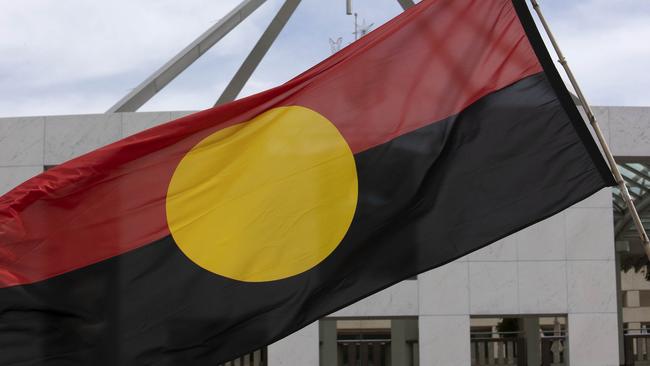A fair way to create a voice all sides can support

Then in 2017, through the Uluru Statement from the Heart, Indigenous people called for the establishment of a First Nations voice and for this to be enshrined in the Constitution.
The Morrison government remains committed to constitutional recognition, and Indigenous Australians Minister Ken Wyatt has implemented a co-design process led by two of Australia’s most respected Indigenous leaders, Marcia Langton and Tom Calma, so that a voice can be established in legislation during this parliament. The question then becomes not how to establish the voice, but how to anchor it in the Constitution.
When Malcolm Turnbull announced his government’s response to the Uluru Statement, he said “a constitutionally enshrined additional representative assembly which only Indigenous Australians could vote for or serve in is inconsistent with” the foundation of democracy and “would inevitably become seen as a third chamber of parliament”. Scott Morrison has affirmed this remains his government’s position. He will not establish a new entity for one group of people in the Constitution.
On Monday night, in a speech to the Sydney Institute, NSW Liberal senator Andrew Bragg explained the way forward: “A voice established in legislation as part of a package which includes a constitutional amendment that obliges the commonwealth to hear Indigenous peoples is a liberal way of delivering what Uluru calls for.”
Bragg first raised this issue in his maiden speech to the Senate, and has detected “a growing group inside the Coalition parties in favour of the voice” since then.
In the speech he referred to an important paper delivered by former chief justice Murray Gleeson in 2019 in which Gleeson explained why the proposal for constitutional enshrinement of a commitment to hearing Indigenous voices is sound from a legal/constitutional point of view.
When Wyatt launched Bragg’s recent book, Buraadja, in Canberra, he acknowledged the attitude of the Australian people to this issue is changing. Bragg was clear-sighted about Wyatt’s observation: “It is very encouraging, but we also need to think about what the people will ultimately support,” he said. “I believe that the Australian people will support the parliament establishing a voice and that they will support an amendment to the Constitution that obliges the commonwealth to ensure Indigenous peoples are heard.” Then he introduced a caveat: “I do not believe that the Australian people will support an amendment to the Constitution, however, that is highly complex and explicitly creates a new entity in the Constitution.
“I say this as someone with some experience of selling controversial changes to the Australian people,” referring to his role in the campaign for same-sex marriage.
Anne Twomey made a suggestion last year that Bragg believes provides the basis for a proposal – an amendment that would impose a constitutional obligation on the commonwealth to ensure Indigenous voices are heard on Indigenous affairs. As Bragg says, this amendment “places a simple and clean obligation on the commonwealth to consult Indigenous people on laws which are made for them. This is a good idea, a fair idea and something we can sell.”
Turnbull and Morrison may be correct in judging Australians will not agree to a new entity in the Constitution if only one group of Australians could participate in it. But Bragg is also correct that “putting an obligation on the commonwealth to consult doesn’t give a special deal to a minority; it provides a duty to consult that should have been there at the outset.”
Damien Freeman is a policy adviser at the Australian Catholic University’s Glynn Institute and a director of Uphold & Recognise.


Since John Howard committed to holding a referendum on constitutional recognition of Indigenous peoples in 2007 there has been a bipartisan commitment across the leadership of the two main parties to achieving this.